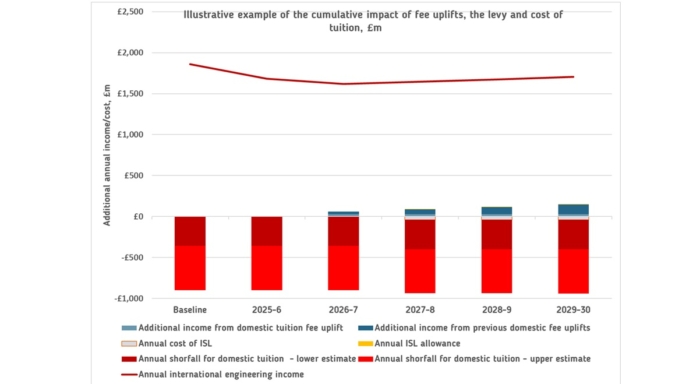The Science, Innovation and Technology Committee – a cross-party group of MPs who look at government policies on science, technology and innovation, and make recommendations for how these could be improved – asked for ideas for topics it should put “under the microscope”.
The EPC responded with a brief, focused suggestion:
What area of science and technology do you think we should be looking at over the next Parliament?
The engineering skills gaps.
Why does it matter to you?
The Engineering Professors’ Council is the representative body of UK engineering academics with 90 member institutions and around 9,000 individual academics at all levels.
The nation’s skills pipeline is widely acknowledged to be producing far too few qualified engineers for a sector that provides around a third of GDP (let alone all the other roles in which engineering skills are valued). For the sake of individual aspirations, businesses’ prospects, a prosperous economy, and a sustainable planet, we are concerned that a better understanding is needed of whether engineering skill shortages are having untold damaging impacts and, if so, what can be done to address the problem.
What do you think the Government should do about it?
Engineering skills shortages (numbers of engineers) and gaps (level of skills) are cited as representing the largest deficiencies in the labour market in just about every study and poll. However, this situation has been going on for decades and the economy (specifically the engineering and manufacturing sector) has not ground to a halt as a result. The Committee should conduct an inquiry to explore whether the deficiences are real or merely supposed. What are the impacts in terms of weakening productivity and growth or creating cost for the economy? What, therefore, might a solution be worth? Are the deficiencies being filled through immigration and, if so, what does that mean for policy?
If we can understand the economic value of a solution, what solutions could be effective in the short, medium and long term to create a stronger skills pipeline, reduce leakage and create opportunities for transfer into engineering throughout careers?




